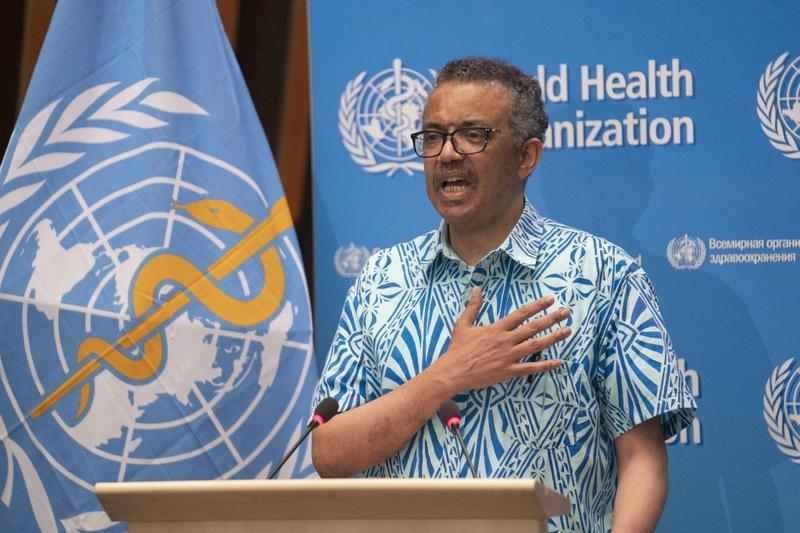 This handout image provided by the World Health Organization (WHO) on May 19, 2020, shows World Health Organization Director-General Tedros Adhanom Ghebreyesus reacting at the closing session of the World Health Assembly virtual meeting from the WHO headquarters in Geneva, amid the COVID-19 pandemic, caused by the novel coronavirus. (CHRISTOPHER BLACK / WORLD HEALTH ORGANIZATION / AFP)
This handout image provided by the World Health Organization (WHO) on May 19, 2020, shows World Health Organization Director-General Tedros Adhanom Ghebreyesus reacting at the closing session of the World Health Assembly virtual meeting from the WHO headquarters in Geneva, amid the COVID-19 pandemic, caused by the novel coronavirus. (CHRISTOPHER BLACK / WORLD HEALTH ORGANIZATION / AFP)
The 73rd World Health Assembly is set to adopt a resolution this week to strengthen preparedness for health emergencies in a year when the COVID-19 pandemic has killed more than 1.2 million people.
There is no vaccine for poverty, hunger, climate change or inequality. It's time for the world to heal-from the ravages of this pandemic, and the geopolitical divisions that only drive us further into the chasm of an unhealthier, unsafer and unfairer future.
Tedros Adhanom Ghebreyesus, WHO director-general
The Committee A of the WHA73 concluded on Tuesday with a recommendation to the assembly to adopt the proposed resolution.
The draft resolution renews the commitment to better prepare for health emergencies such as COVID-19, through full compliance with the 2005 International Health Regulations, according to a statement by the World Health Organization.
It urges the 194 member states to "dedicate domestic investment and recurrent spending and public funding to health emergency preparedness" and to "improve government and decision-making processes and enhance institutional capacity and infrastructure for public health".
The resolution, which will be considered on Friday, calls on the global health community to ensure all countries are equipped to detect and respond to cases of COVID-19 and other infectious diseases.
The WHA73, which was held on May 18-19, resumed on Monday and will last until Saturday.
WHO Director-General Tedros Adhanom Ghebreyesus said on Tuesday experts are working on the origin of the novel coronavirus that caused COVID-19.
ALSO READ: Global COVID-19 cases near 50 million mark amid US spread
"These are excellent and respected professionals. And I know they will do their work professionally," he said. "We will give them all the support they need."
Tedros also reiterated the importance of building strong health systems at the national, regional and global level.
In his opening remarks on Monday, Tedros called on member states to "address the shocking and expanding imbalance between assessed contributions and voluntary, largely earmarked funds".
Geopolitical divisions
While describing the vaccine announced by Pfizer as encouraging, he warned a vaccine cannot address the global underinvestment in essential public health functions and resilient health systems.
"There is no vaccine for poverty, hunger, climate change or inequality," he said. "It's time for the world to heal-from the ravages of this pandemic, and the geopolitical divisions that only drive us further into the chasm of an unhealthier, unsafer and unfairer future."
READ MORE: Pfizer says COVID-19 vaccine more than 90% effective
On Monday, the session refused to include the so-called proposal of "inviting Taiwan to attend the WHO as an observer "in its provisional agenda.
Chen Xu, Chinese ambassador to the UN in Geneva, condemned the move by a few countries.
"This proposal violates the purpose and principles of the UN Charter and rejects the one-China principle that both UNGA (UN General Assembly) Resolution 2758 and WHA Resolution 25.1 established. It is illegal and invalid," he said in a video statement to the WHA.


